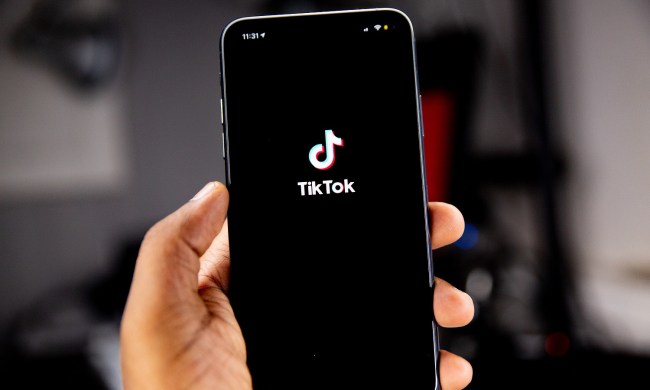You’ll soon be able to look up the faces featured in a TikTok clip. The ByteDance-owned short-form video app is testing a new reverse-image search tool in China. In addition to items such as clothes, the feature will allow you to select a face and browse other videos the person it belongs to appears in.
Originally spotted by WeChat analyst Matthew Brennan, the tool is primarily designed as a source of revenue. When a piece of clothing or other product is selected, TikTok’s visual search will scour e-commerce platforms for a match and show related links if it finds any. The way it’s built is similar to what U.S.-based companies like Google offer.
However, its scope isn’t restricted to simply objects. The feature can be employed to search for videos on TikTok based on the faces in them. This feature also suggests TikTok is harvesting its content for identifiable data.
It’s unclear, though, whether this functionality applies to everyone. Brennan has demoed the option on a celebrity’s account. On top of that, we don’t know whether TikTok is scanning both private and public videos. As of now, it’s limited to the app’s Chinese version, but it’s expected to roll out to the rest of the world soon.
Chinese TikTok now has in-video search. Search someone's face to find more videos of them. Search in-video products or clothes and buy directly #抖音 pic.twitter.com/RBcIqnOBgN
— Matthew Brennan (@mbrennanchina) September 23, 2019
TikTok isn’t the first social network to embed facial-recognition tech inside its algorithms. Facebook, for instance, bundles it for automatic tag suggestions in an uploaded picture. While enabled by default, Facebook did make the function optional following a privacy outcry.
Over the last few months, TikTok has gradually begun to capitalize on its growing popularity. A few weeks ago, the company released a native audience network that gives businesses access to a treasure trove of advertising data. The move will allow advertisers to essentially target users based on what they’ve been watching on TikTok.
With its Chinese roots, it remains to be seen how users and lawmakers in the West will respond to TikTok’s new visual search tool. The social media platform is currently reeling from a Guardian report that revealed its moderators have been actively censoring videos that speak against China and its government.



